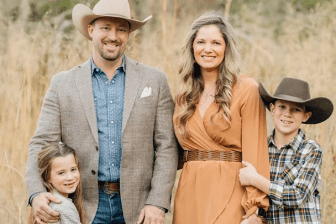WILMINGTON, Del. – The Los Angeles Dodgers and Major League Baseball squared off in a Delaware bankruptcy court Wednesday as the team sought court approval of a US$150 million financing arrangement that MLB is challenging with a financing offer of its own.

After hearing about eight hours of testimony and arguments, the judge told lawyers he wanted time to think and would try to issue a ruling by Thursday evening.
The rancour between the two sides was evident from the start, with Dodgers lawyer Bruce Bennett telling the judge the team should not be forced to accept the league’s financing offer, which Bennett characterized as “a deal with the devil.”
Bennett said the league’s offer is structured to exert control of the Dodgers and try to force a sale while hamstringing the club’s ability to exercise its business judgment and protect itself in any legal disputes with the league if it accepts its financing offer.
Thomas Lauria, a lawyer representing Commissioner Bud Selig, accused team owner Frank McCourt of violating league rules by filing for bankruptcy protection and entering into the proposed financing arrangement with hedge fund Highbridge Capital Management without league approval.
But Judge Kevin Gross indicated he would not let arguments over the team’s ownership influence his decision on who should be its lender.
“To me, this is about dollars and cents. This is not the control issue that the parties seem to think that it is,” the judge said at the end of Wednesday’s hearing. If Major League Baseball gets the debtor-in-possession financing, it will not be dictating all the terms, and if Highbridge is the lender, the team will not be able to forsake its obligations to Major League Baseball, Gross explained.
In arguing against the Dodgers’ financing plan, Lauria accused McCourt of using the bankruptcy to reap benefits for himself as major shareholder of the Dodgers, while also trying to be relieved of his obligations as a club owner under Major League Baseball’s rules.
“There is no basis for the court to intervene and permit the requested violations,” he argued.
At the same time, Lauria indicated Selig is willing to work with the Dodgers to resolve their concerns over MLB’s financing offer.
“We’re here to do what’s in the best interests of this team… Tell us what you need,” he said.
Wednesday’s hearing began with the Dodgers’ official committee of unsecured creditors withdrawing its objection to the team’s proposed hedge fund financing after minor modifications were made to the loan agreement with Highbridge, including reducing the minimum interest rate from 10 per cent to nine per cent.
Meanwhile, Bennett said the league is overstating the savings offered on its plan, which the Dodgers admit has better economic terms. Bennett said the difference is about $6.5 million, an amount he suggested could be eaten up in court fights with MLB as a lender.
“Disputes … are going to be expensive,” he said. “It is not the case that the Major League Baseball proposal is necessarily cheaper.”
After being repeatedly interrupted by objections from MLB lawyer Glenn Kurtz while questioning team executive Jeffrey Ingram, Dodgers attorney Matthew Walsh said any doubt that the two sides will be “litigating everything” had been answered.
Dodgers lawyers backed up their suggestions that the league could not be trusted by submitting two letters, over objections by league lawyers, that the Dodgers say document MLB’s breach of a previous agreement giving the Dodgers’ flexibility in its balance sheet calculations in order to enlarge its capacity for debt under league rules.
Selig’s lawyers also unsuccessfully objected to admission of an excerpt from a deposition given by MLB executive vice-president of administration John McHale Jr. In the deposition, McHale recounted a telephone conversation he had with Rob Manfred, executive vice-president of labour relations, after McCourt approached the league shortly before the bankruptcy filing.
Manfred told McHale that McCourt asked the league for $80 million in interim financing to help the team until a broadcast deal with Fox Sports could be signed. Manfred, according to McHale, told McCourt “that he thought he should sell the club.”
The Dodgers filed for bankruptcy protection on June 27, blaming Major League Baseball for refusing a week earlier to approve a multibillion-dollar TV deal with Fox Sports that McCourt was counting on to keep the troubled franchise afloat and meet payroll deadlines at the end of June.
Selig’s rejection of the TV deal came after he took the extraordinary step in April of assuming control of the troubled franchise and appointing a monitor to oversee its day-to-day operations, saying he was concerned about the team’s finances and how the Dodgers were being run.
Ingram testified that the Dodgers approached several potential lenders before eventually reaching an agreement with Highbridge, and they never considered asking for a loan from the league, which earlier this year had threatened to withhold a scheduled distribution from a club trust.
“We didn’t want them to be our lender,” Ingram said. “Given the adverse relationship between the parties, there was a concern it would not be a good match.”


Comments